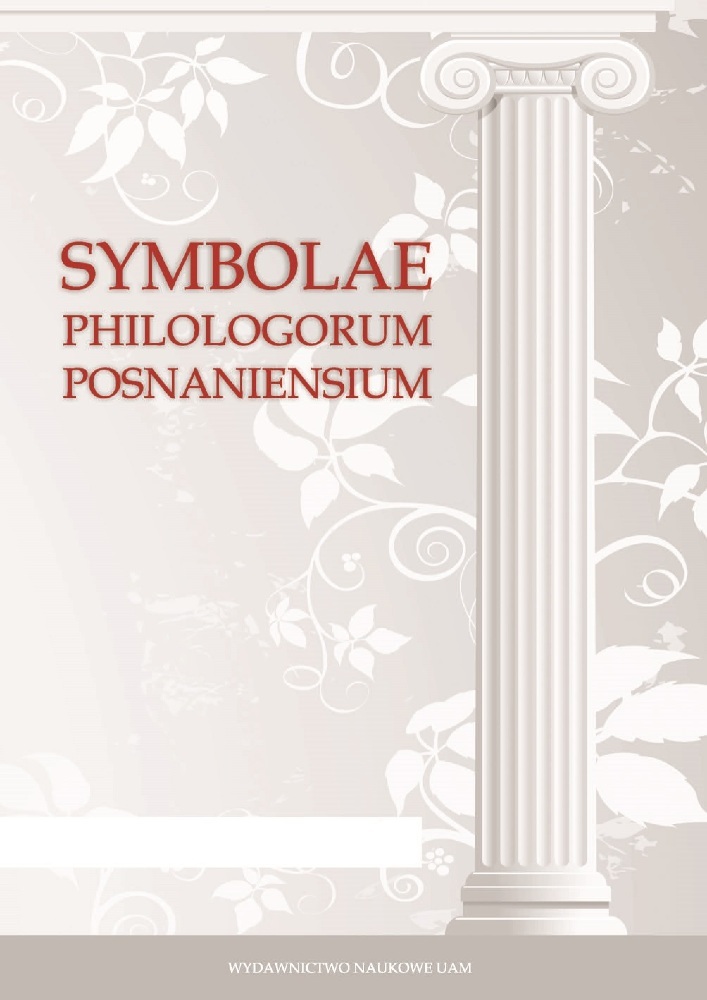Abstract
In this paper I examine Dracontius’ poem De raptu Helenae to prove his unconventionality and originality in
presenting a well-known myth. He analyses the story of the judgement of Paris from the legal point of view
using professional, legal vocabulary. At the same time he takes into account also the moral and Christian dilemmas
and thereby he finds completely new aspects and interpretations, ignored by previous poets.
Literaturhinweise
Źródła
Blossius Aemilius Dracontius, OEuvres, t. I, ed. by C. Moussy et C. Camus, Paris 1985.
Blossius Aemilius Dracontius, OEuvres, t. III, ed. by J. Bouquet et É. Wolff, Paris 1996.
Opracowania i komentarze
Barwinski 1888: B. Barwinski, Quaestiones ad Dracontium et Orestis Tragoediam Pertinentes. Quaestio II: De Rerum Mythicarum Tractatione, Gottingae 1888.
Bretzigheimer 2010: G. Bretzigheimer, Dracontius’ Konzeption des Kleinepos De raptu Helenae (Romul. 8), “Rheinisches Museum für Philologie” 153, 2010.
Diaz de Bustamante 1978: J.M. Diaz de Bustamante, Draconcio y sus Carmina Profana. Estudio biográfico, introduction y edición critica, Santiago de Compostela 1978.
Santini 2006: G. Santini, Inter iura poeta: ricerce sull lessico giuridico in Draconzio, Roma 2006.
Simons 2005: R. Simons, Dracontius und der Mythos. Christliche Weltsicht und pagane Kultur in der ausgehenden Spätantike, München–Leipzig 2005.
Strzelczyk 1992: J. Strzelczyk, Wandalowie i ich afrykańskie państwo, Warszawa 1992.
Wilson 1943: E.F. Wilson, Pastoral and Epithalamium in Latin Literature, “Speculum” 1, 1943.
Wolff 1987: É. Wolff, Recherches sur les epyllia de Dracontius, Paris 1987.
Lizenz
